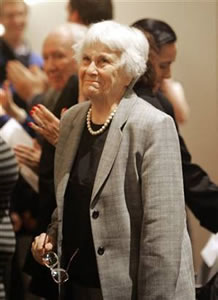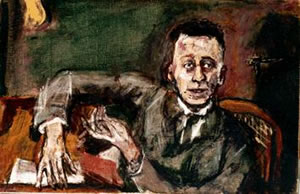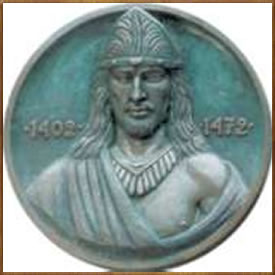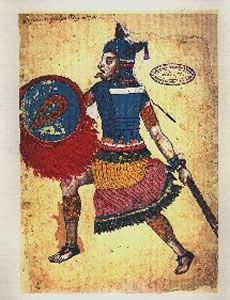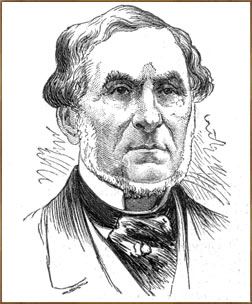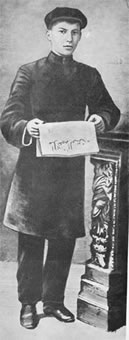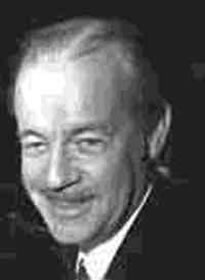De Duitse schrijver Peter Schneider werd geboren in Lübeck op 21 april 1940. Zie ook alle tags voor Peter Schneider op dit blog.
Uit: Die Lieben meiner Mutter
„Manchmal kam es zum Streit zwischen uns, und ich musste mich des Eindrucks erwehren, dass ich nicht der Entzifferin der Briefe, sondern ihrer Verfasserin gegenübersaß.
Aus den Briefen trat mir eine junge Frau entgegen, die ich nicht kannte. Eine Mutter, die sich für ihre Kinder zerriss und sie dank ihres Wagemuts und ihrer praktischen Intelligenz auf einer langen Flucht aus dem äußersten Nordosten Deutschlands wohlbehalten in den südlichsten Zipfel Bayerns brachte. Eine Ehefrau, die ihrem Mann Heinrich zwischen tausend Nachrichten über das Alltägliche und das Wohlergehen der Kinder zärtliche, manchmal auch zickige Zeichen ihrer Liebe schickte. Und eine Träumende, die von ihrer Leidenschaft für Andreas, einen Freund und Kollegen ihres Mannes, verzehrt wurde.
Vor allem aber lernte ich eine Schreibende kennen, die ihren Schwankungen zwischen Lebenslust und Schwermut fast hilflos ausgeliefert war, aber noch in den Augenblicken völliger Verzweiflung über eine erstaunliche Ausdrucksfähigkeit verfügte. Das Schreiben ist für die Mutter offenbar ein Überlebensmittel gewesen, eine Waffe, mit dem sie die zerstörerischen Kräfte, die von außen wie von innen auf sie einstürmten, in Schach zu halten versuchte. Die Form, die sie in ihrem kurzen Leben für das Schreiben fand, waren ihre Briefe. Sie war einundvierzig, als sie starb.
Über mich, den damals Sieben- und Achtjährigen, hatte sie alle Macht verloren. Hilflos musste sie mit anschauen, wie meine ältere Schwester und ich in den Bann eines jugendlichen Zauberers gerieten, der ihr den Zugang zu uns versperrte. Nachts im Bett verwandelte ich mich in ein anderes Wesen. Ich flog, aber dies war kein Fliegen, wie ich es bei den Vögeln beobachtete, die hoch über mir in dem engen, von mächtigen Felswänden eingeschlossenen Himmel kreisten. Es war ein Fliegen, das aus dem Laufen und Rennen entstand, ein Springen und Hinweggleiten über die steilen Hänge, wobei der Fuß nach dem Abstoßen wie versehentlich den Kamm des nächsten und übernächsten Hügels streifte, bis – man musste sich bloß trauen! – die Berührung mit der Fußspitze überflüssig war und nur noch der Vergewisserung diente, dass ich mich nicht zu hoch über die Erde erhoben hatte. Plötzlich war dieses mächtige Sausen in meinen Ohren, und der ganze Hügel- und federlose Körper rauschte hinaus ins Freie, während die Hügel jählings unter mir wegstürzten wie eine Erdlawine, die ich mit den Zehenspitzen losgetreten hatte. Eine kurze Ewigkeit lang glitt ich dahin in der beängstigenden und herrlichen Leere, leicht, aber nicht schwerelos, denn der Körper kannte immer noch seine Bestimmung, erdwärts zu fallen, und dies würde unweigerlich geschehen, sobald ich an den Absturz dachte.”

Peter Schneider (Lübeck, 21 april 1940)
Cover
De Schotse schrijver Alistair Stuart MacLean werd geboren op 21 april 1922 in Glasgow. Zie ook alle tags voor Alistair MacLean op dit blog.
Uit: The Golden Gate
“The coach, one of six ever made, had cost Branson ninety thousand dollars: for the purposes for which he intended to use it, he considered this figure a trifling investment He was buying the coach, he had told the Detroit firm, as an agent for a publicity-shy millionaire, who was also an eccentric who wanted it painted yellow. And yellow it had been when it was delivered: it was now a gleaming, translucent white.
Two of the remaining five coaches had been bought by genuine and extrovert millionaires, both of whom intended them for luxurious, personal vacation travel. Both buses had rear ramps to accommodate their mini-cars. Both, presumably, would rest for about fifty weeks a year in their specially-built garages.
The other three buses had been bought by the government.
The dawn was not yet in the sky.
The other three white buses were in a garage in down-town San Francisco. The big sliding doors were closed and bolted. In a canvas chair in a corner a man in plain clothes, a sawn-off riot gun held on his lap by flaccid hands, slept peacefully. He had been dozing when the two intruders arrived and was now blissfully unaware that he had sunk into an even deeper sleep because he’d inhaled the single-second squirt from the gas gun without being aware of the fact. He would wake up within the hour almost equally unaware of what had happened and would be extremely unlikely to admit to his superiors that his vigilance had been a degree less than eternal.”

Alistair MacLean (28 april 1922 – 2 februari 1987)
Cover
De Franse dichter en schrijver Népomucène Lemercier werd geboren op 21 april 1771 in Parijs. Zie ook alle tags voor Népomucène Lemercier op dit blog.
Uit: Agamemnon
« PALLENE Ainsi donc tes destins sont im-ennus encore.
ÉGISTE: Clitemnestre les sait, le reste les ignore.
PALLENE. Aux transports d’une femme, à son coeur indiscret;
falloit-ii confier ton nom et ton secret?
ÉGISTE: J’en devois à ses feux l’utile confidence.
PALLENE. L’amour aveugle-t-il à tel point ta prudence
que trahissant Égiste en des lieux ennemis?. •
ÉGISTE: Penses-tu, qu’à l’amour en esclave soumis,
usé des longs chagrins où ‘vécut ma jeunesse,
je suive de ses lois la honteuse mollesse ?
PALLENE. Je vois ici les Grecs, de tes destins jaloux,
te rendre lus respe,ts.qu’on dut à son époux.
Moi-merne, je pensois que les yeux de la reine
soumettoient ton orgueil à porter une chaine.
ÉGISTE:. On croit que ses faveurs me fixant à sa cour,
m’en font seule chérir le tranquille séjour:
ainsi lorsque nies vieux aspirent à son trône,
arrive à pas secrets l’instant qui me couronne;
j’écarte, en nourrissant moi-meme cette erreur,
le senly»n des complets conçus par ma fureur.
Tu sas Clitemnestre aux lassions livrée
naquit diène de vvre aveu le ails d’ Atrée:
vaine, extrême. farouche en tous ses sentimens,
elle ne met nul frein â ses emportemens;
fatale épouse autant que mère courageuse,
enfin, elle est amants, et cette aine orageuse
qui de son chaste hymen étoit fière autrefois,
à sen crime attachée est•fière de son choix,
et fille de Léda, Bans peine tu peux croire
qu’à l’exemple d’Hélène elle en fera sa gloire; »

Népomucène Lemercier (21 april 1771 – 7 juni 1840)
Agamemnon kijkt toe terwijl Achilles de prijs van wijsheid presenteert aan Nestor tijdens de begrafenisgames. Geschilderd door Michel Martin Drolling, ca. 1810
De Columbiaanse dichteres Meira Delmar (eig. Olga Isabel Chams Eljach) werd geboren in Barranquilla op 21 april 1922. Zie ook alle tags voor Meira Delmar op dit blog.
Mediodía
Canta la luz aire arriba
como una alondra.
Y por la rama de su canto sube
el mediodía.
Quieren los ojos seguirlo
pero no llegan.
Como el amor, el sol,
de tanto, ciega.

Meira Delmar (21 april 1922 – 18 maart 2009)
Onafhankelijk van geboortedagen:
De Duitse dichter Gerrit Wustmann werd in 1982 in Keulen geboren. Zie ook alle tags voor Gerrit Wustmann op dit blog.
briefe
nach seyed ali salehi
schreib briefe an rira
die ein vogel diktiert aus einem käfig
aus seinem käfig heraus
berichtet er der taube vom fliegen
schreib briefe an rira
und warte bis das summen ihres liedes
jenen einen einzigen ton ergibt
schreib briefe an rira
sechzehnmal mit sechzehn versen
falte sie sorgfältig wie deine wimpern
am morgen und reiche sie dem vogel
durch die gitterstäbe
damit er sie
auswendig lernt:
liebe rira
wir singen
ein verworrenes lied

Gerrit Wustmann (Keulen, 1982)






















